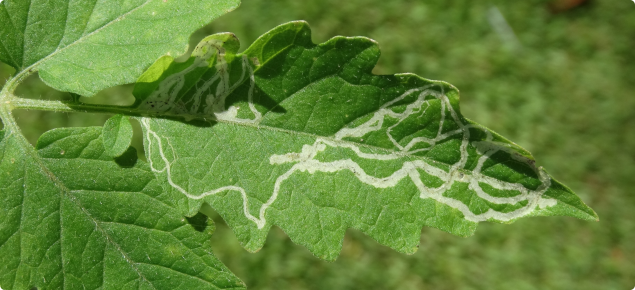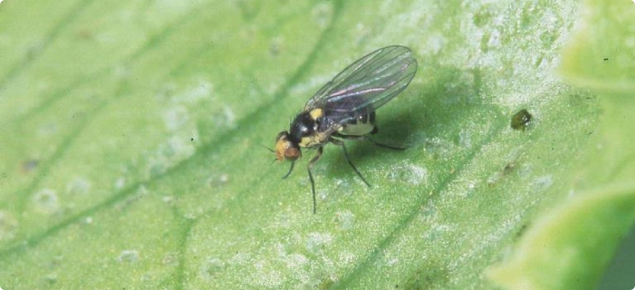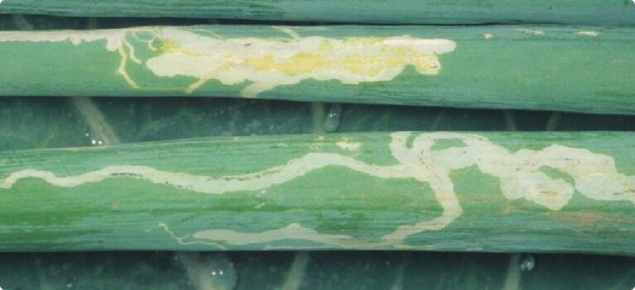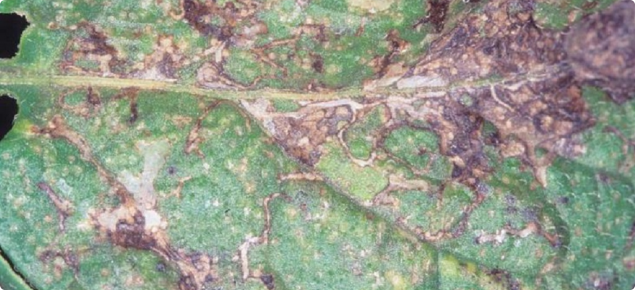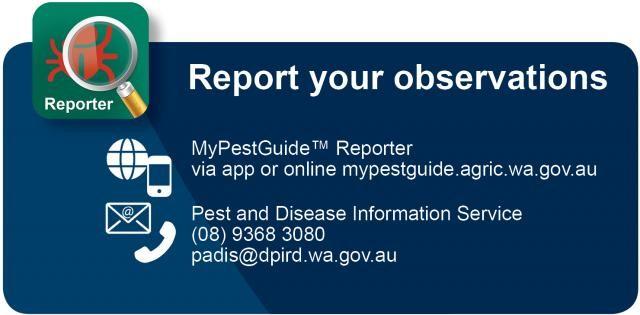What plants are affected?
Serpentine leaf miner has a wide host range and can attack more than 300 different plants. It is particularly damaging in leafy vegetables like spinach, lettuce and chinese greens as well as in tomatoes, potatoes, onions, melons, peas, celery, chrysanthemums, grains and other crops. It has major impact in plant production nurseries.
What do I look for?
- Light green or white squiggly trails or 'mines' on leaf and stem surfaces.
- Sometimes the trails have blackened edges.
- Trails get wider as the larvae grow.
- Adult serpentine leaf miners are small black flies with a yellow head and yellow spots on the thorax. Adult flies are 1-2.5 mm long.
How does the pest survive and spread?
- The greatest risk of spread is when people move infested plant material, soil and packaging. Adult flies also hitchhike on vehicles and machinery.
- Although adult serpentine leaf miners are not strong flyers, the wind may help them to travel further.
- Adult females pierce the leaf surface and lay eggs inside.
- Eggs hatch in 2-5 days and the larvae start to tunnel and feed.
- Larvae leave the plant to pupate in crop debris or the soil.
What damage can this pest cause?
The loss of healthy leaf tissue reduces the plant's ability to photosynthesize. In severe infestations, leaves wilt and die. Leaf damage delays production and reduces the yield of affected crops. Unsightly leaf damage makes leafy vegetables unsaleable and reduces the value of ornamental plants and cutflowers.
Status in Western Australia
Liriomyza huidobrensis (Blanchard, 1926) is absent from Western Australia and is a quarantine pest.
It is a prohibited organism under section 12 of the Biosecurity and Agriculture Management Act 2007.
Western Australia's Pest Freedom for serpentine leaf miner is supported by general and specific surveillance, and specific import requirements to prevent its entry. A person who finds or suspects the presence of serpentine leaf miner must report it to DPIRD.
Report suspect pests
Early detection and eradication will help protect Western Australian agricultural and horticultural industries. Please make a report on MyPestGuide Reporter to report this pest.

